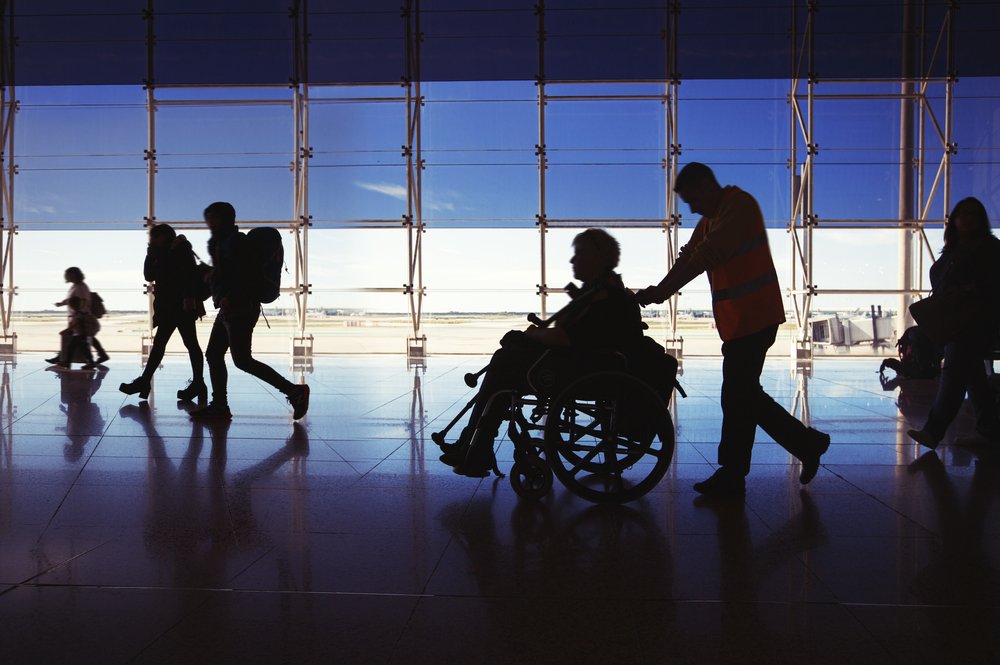National MS Society Joins Other Groups Urging Reform of U.S. Law Protecting Disabled Airline Passengers
Written by |

The National Multiple Sclerosis Society and a dozen other advocacy groups have banded together to support the Air Carrier Access Amendments Act of 2017, a bill seeking to strengthen the rights of airline passengers and close service gaps often faced by patients with disabilities, including those with multiple sclerosis (MS).
President Ronald Reagan signed the Air Carrier Access Act (ACAA) into law in 1986 to prohibit discrimination against disabled air passengers. Although the ACAA did indeed improve access for patients with disabilities, such people still face significant barriers today.
The pending 2017 legislation highlights the ACAA’s original spirit through a series of strategies designed to improve access to air travel. These strategies include protecting certain specific rights; ensuring that interior airplane design includes accommodation for people with disabilities; evaluating airlines’ accessibility standards, including for boarding and deplaning; improving seating standards, and closing service gaps for passengers with disabilities.
“Last year more than 30,000 passengers, including many Paralyzed Veterans of America members, filed disability-related complaints with airlines,” David Zurfluh, national president of Paralyzed Veterans of America (PVA), said in a press release. “The historic passage of the Air Carrier Access Act more than 30 years ago prohibited discrimination against disabled passengers in air travel, yet many travelers with disabilities still encounter damaged equipment, delayed assistance, lack of seating accommodations, and other challenges when traveling by air. We urge Congress to expediently act on updating this important civil rights law.”
Introduced by Sen. Tammy Baldwin (D-Wisconsin), the 2017 legislation is co-sponsored by four other Democrats in the Senate: Tammy Duckworth of Illinois, Ed Markey of Massachusetts, Maggie Hassan of New Hampshire and Richard Blumenthal of Connecticut.
“In order to keep America’s promise of full equality for all, we must work to break down the barriers that individuals with disabilities and our veterans face when they travel,” said Baldwin. “Equal access to air travel ensures individuals with disabilities are able to participate in today’s economy and enjoy their travel opportunities.”
Besides the National MS Society and PVA, the amended ACAA is supported by the Disability Rights Education and Defense Fund, the National Association of the Deaf, the American Council of the Blind, the National Disability Rights Network, the Muscular Dystrophy Association, the National Council on Independent Living and the American Association of People with Disabilities (AAPD), among others.





